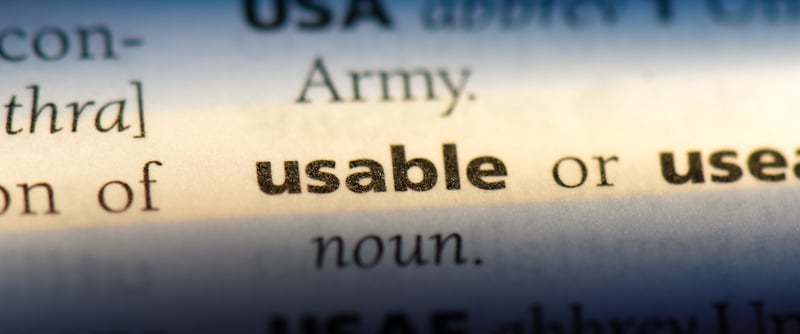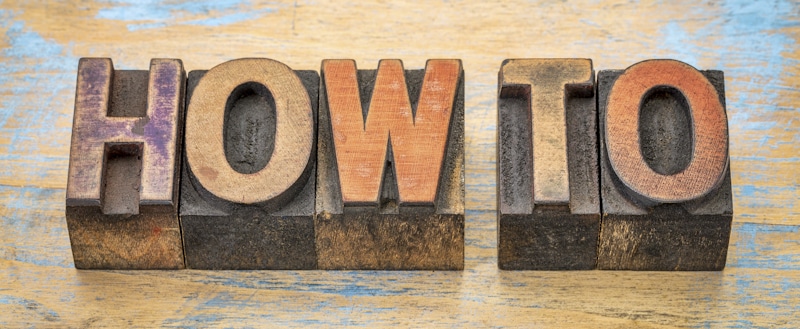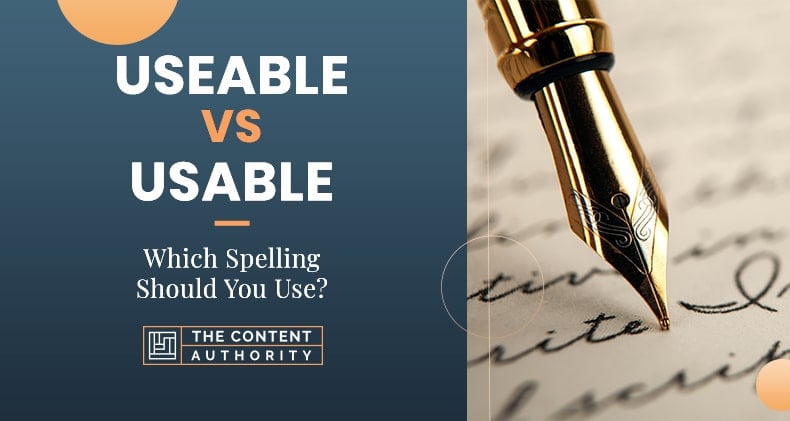Sometimes, words in English can be spelled in different ways. Occasionally, depending on the country or region speaking the language, other times on the writer’s academic background, or on the period the word is from or was spoken in. Yet we’d dare say that most times, it’s because words go through a process of change and even mutation due to language economy, text culture, or even mistakes that transcend.
“Usable” is a frequently used adjective meaning something is able to be used. As the term relates to the verb “to use,” a common spelling for the word is “useable,” which breaks down literally as use-able. Ultimately, both are correct as it mostly depends on the region the speaker is located.
Let us review the case of “useable” vs. “usable” and what exactly is the matter in this particular situation.

What’s The Meaning?
“Usable” is an adjective, meaning that it is a word meant to describe a quality or a state of a noun it most usually accompanies. Something “usable” is essentially something:
- That can be used
- That is capable of being used
- That is fit for use for a specific purpose.
That’s to say that you have a purpose, you have an item, and if both match in way and purpose, you’ll get a “usable” item. Additionally, something usable is understood not only as something or someone able or capable of being used for a specific purpose but also in a state or condition that is good enough or decent enough to allow its use.
An alternate meaning would be that something considered “usable” is something that is not only fit for use and in a condition to be used, but that is also more convenient to be used for a specific purpose among the universe of things that can be used for that same thing.
In terms of semantics and depending on the source, “useable” is sometimes named as a synonym for “usable.” In contrast, in others, it’s defined as merely an alternative writing or variant. Yet, the actual clash, in this case, comes from two distinct situations. The first comes from where one would assume the word is derived from versus where it really originates and subsequently, how that origin may impact or not its spelling. The second comes from the forms and habits of specific English-speaking regions throughout the world.
The Source Of All Usable (Or Useable) Things
Merriam-Webster indicates that the term “usable’s” first known use dates back to the 14th century, in the sense and meaning used today.
One would presume that “usable” would derive from the verb “to use,” and therefore, an accurate, or at least archaic spelling for this word would be “useable.” One could then reasonably presume that with “useable” may have happened what has indeed happened with many other words in the English language, such as awful -derived from awe-, joyful and wonderful -depicting things “full” of joy and wonder-, lying -as derived from the very to lie-, etc., and this is that due to either language economy, the evolution of the word as it becomes more used, or a simple “Americanization” of the term.
With respect to Americanization, it is well known that the English language has adapted, in terms of grammar and spelling, to the different regions it is spoken in and the particular habits of the speakers in these regions. American English is therefore known to, in spelling, be more adaptive to how things sound; the phonetics of the spoken word, than its etymology; the source from which a word derives.
Yet, in this case, the etymology confirms that “usable” indeed dates back to the 14th century and does not actually derive from the English verb “to use,” but from the French “usable,” defined as “available or in use.” Moreover, it’s indicated that the English term “usable” was not of everyday use before the mid-1800s, therefore debunking the presumption that “useable” is some form of archaic spelling. Although it is not discarded that the term as known and used today could indeed be a mid-1800s reformation from the verb to use and the suffix able, indicating something that is literally “able to be used.”
When To Use Each?
In terms of the correct use of one spelling vs. the other, it would depend on where you are located. As mentioned, American English is more prone to skimming words to match the spelling of a word to its phonetics. Therefore, in the United States and countries where the so-called “American” English is the norm, you’ll most likely find “usable” as the approved and commonly used spelling.
This is not so for Canada, where you’ll find “useable” to be more frequently used, rendering it the approved and recognized spelling. This is also the case where British English is of everyday use, not only in Great Britain in general, but also in other former colonies such as India, South Africa, and some other current commonwealth countries outside the UK such as Canada mentioned above, Australia, New Zealand, and multiple Lesser Antilles islands such as Barbados, Jamaica, the Bahamas, St. Vincent, and The Grenadines, Antigua and Barbuda, Grenada, among others. In all these countries, you will find “useable” is commonly used.

So, How Should I Use Each One?
By unspoken rule, you should be able to use either “usable” or “useable” in the same situations. Yet, the choice between one or the other would depend on where you’re physically located or where you’re from. Just like “center” vs. “centre”, “flavor” vs. “flavour”, “labor” vs. “labour”, and so forth, American English, the one spoken in the United States and not necessarily in all America the region, or even in all North America the continent, favors more phonetic spellings exempt of extra letters that may not impact the sounds of the spoken words.
British English is known for being more faithful and respectful of the words’ etymology, preserving the original spelling in the native languages that most commonly influence its vocabulary, such as German or French.
So in order to provide examples of use, let’s focus more on the different meanings of the word, and show how using one spelling or the other would not impact the sense of the sentences or their understanding by the average reader.
Usable/Useable As “Able Or Capable Of Being Used”
- Classify the trash to obtain potentially usable items.
- Classify the trash to obtain potentially useable items.
Usable/Useable As “In Fit Condition To Be Used”
- Thrift shops receive all kinds of usable items, whether clothing, household appliances, or anything else that can be put to further use by new owners.
- Thrift shops receive all kinds of useable items, whether clothing, household appliances, or anything else that can be put to further use by new owners.
Usable/Useable As “More Efficient To Be Used”
- The silver one is the most usable lemon squeezer, as the yellow one’s material breaks quickly.
- The silver one is the most useable lemon squeezer, as the yellow one’s material breaks quickly.
In Short
There is no right or wrong when it comes to “usable” or “useable.” British English speakers would definitely consider “usable” a spelling catastrophe, as American spelling is usually criticized for its phonetic approach to language. Yet, the truth is that although one can most definitely find “useable” in written material from countries like Canada, Australia, and Britain itself, the most common, frequent, and approved spelling for the word is “usable,” as etymology is, in this particular case, on its side.
Shawn Manaher is the founder and CEO of The Content Authority. He’s one part content manager, one part writing ninja organizer, and two parts leader of top content creators. You don’t even want to know what he calls pancakes.

